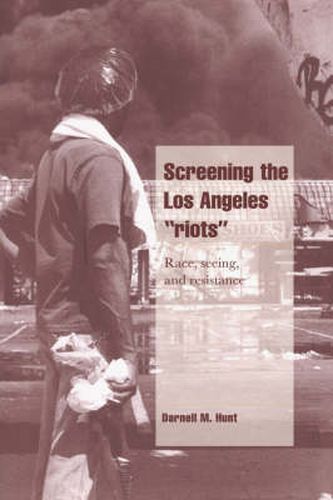Readings Newsletter
Become a Readings Member to make your shopping experience even easier.
Sign in or sign up for free!
You’re not far away from qualifying for FREE standard shipping within Australia
You’ve qualified for FREE standard shipping within Australia
The cart is loading…






On April 29 1992, the ‘worst riots of the century’ (Los Angeles Times) erupted. Television newsworkers tried frantically to keep up with what was happening on the streets while, around the city, nation and globe, viewers watched intently as leaders, participants and fires flashed across their television screens. Screening the Los Angeles ‘Riots’ zeros in on the first night of these events, exploring in detail the meanings one news organisation found in them, as well as those made by fifteen groups of viewers in the events’ aftermath. Combining ethnographic and quasi-experimental methods, Darnell M. Hunt’s account reveals how race shapes both television’s construction of news and viewers’ understandings of it. He engages with the longstanding debates about the power of television to shape our thoughts versus our ability to resist, and concludes with implications for progressive change.
$9.00 standard shipping within Australia
FREE standard shipping within Australia for orders over $100.00
Express & International shipping calculated at checkout
On April 29 1992, the ‘worst riots of the century’ (Los Angeles Times) erupted. Television newsworkers tried frantically to keep up with what was happening on the streets while, around the city, nation and globe, viewers watched intently as leaders, participants and fires flashed across their television screens. Screening the Los Angeles ‘Riots’ zeros in on the first night of these events, exploring in detail the meanings one news organisation found in them, as well as those made by fifteen groups of viewers in the events’ aftermath. Combining ethnographic and quasi-experimental methods, Darnell M. Hunt’s account reveals how race shapes both television’s construction of news and viewers’ understandings of it. He engages with the longstanding debates about the power of television to shape our thoughts versus our ability to resist, and concludes with implications for progressive change.